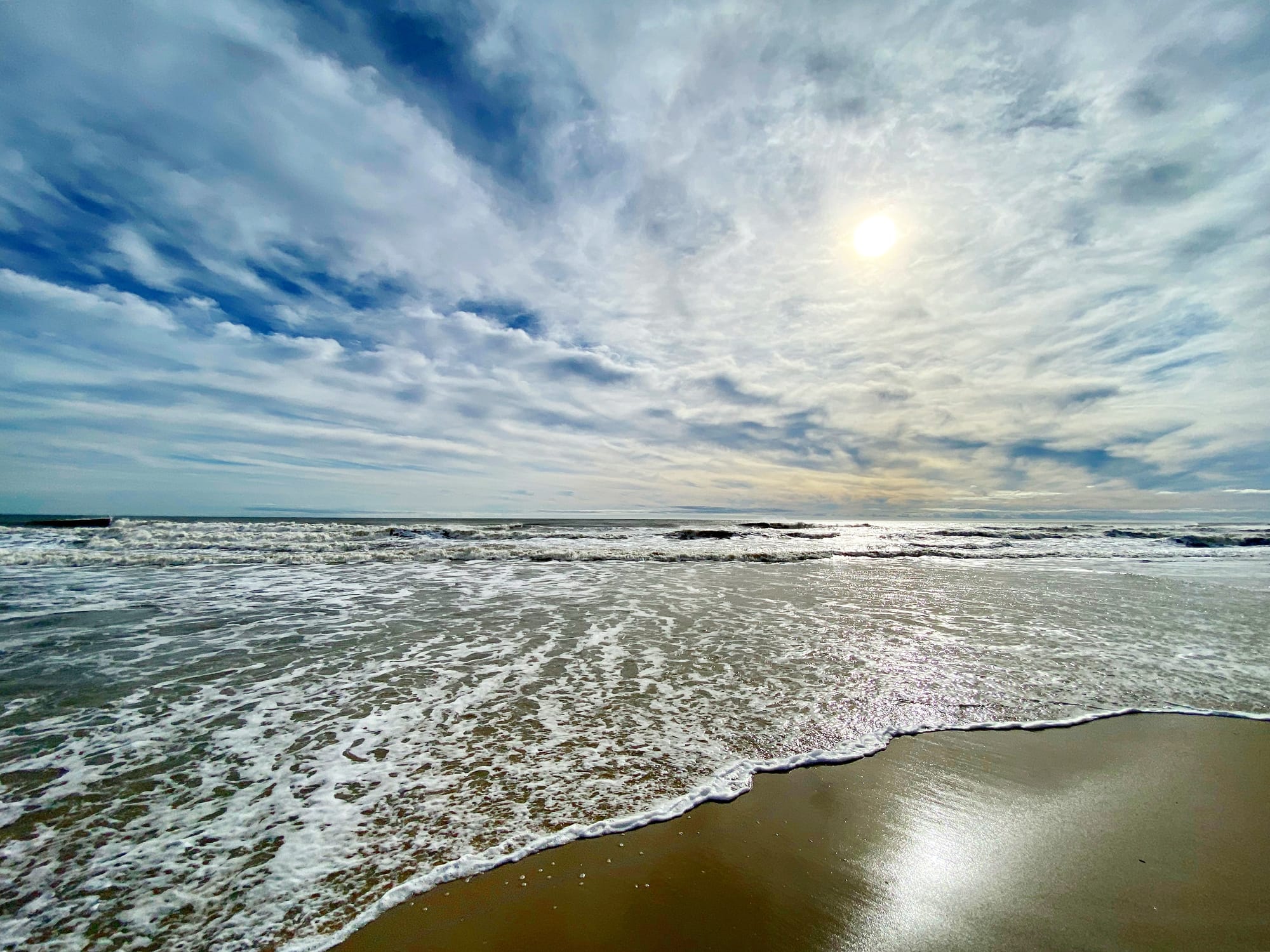Buying A Better Camera Doesn't Make You A Better Photographer
Focus On These Two Things Instead To Take Your Photos To The Next Level

Focus On These Two Things Instead To Take Your Photos To The Next Level
I used to think that I needed a better camera to become a better photographer.
What I’ve learned is that a better camera doesn’t make you a better photographer.
A better camera is simply a more reliable tool for capturing images.
Typically, when buying a “better” camera you are buying the enhanced ability to capture quality images, despite any adverse conditions. What I mean by this is that the camera is typically better at delivering a technically sound image, despite imperfect lighting, weather, and/or subject movement.
Here’s a list of the things that are typically associated with more expensive cameras.
- Better Low Light Sensitivity (able to make better pictures in low light)
- Enhanced Auto Focus (able to gain focus quickly, with different modes depending on the situation)
- Better Weather Sealing (prevents dust and moisture from ruining the camera)
- More Robust Build (metal body, it can survive more bumps and/or drops)
- Direct Action Buttons (uses dedicated buttons rather than menu diving to change the camera’s settings)
- Better Video Functionality (higher resolutions and frame rates)
- Dual Card Slots (to guarantee image capture in case a memory card fails)
- Higher Resolution / Pixel Size (more megapixels is not the whole story, pixel size matters too)
- Higher Frame Rates (more frames per second for both stills and video)
- Larger Sensor (full frame or medium format, typically larger sensors have better bokeh and light sensitivity as a result of larger individual pixels)
- Improved Dynamic Range (the ability to capture light and dark extremes in a single image)
If you’re a working professional or you’re experiencing a once in a lifetime event, you don’t get a second chance to capture an image. For this reason it does actually make sense to have some of these features as they improve your chances of being able to capture and deliver images to a client or consumer, no matter what the shooting conditions may be.
Typically though, these are “nice to have” features, not “need to have” features.
If you can’t say exactly why you need a better camera, then most likely you don’t. In fact, one of my most complimented photographs was taken on an iPhone 6. Yup, you read that right. The most recent compliment on that photograph came less than a month ago, in 2025. (This is the image featured in this post.)
For whatever reason, this photo resonates with people even though it is not the most technically sound image. Experienced photographers may notice that the highlights are lost and that it is slightly oversharpened. For everyone else, they are just gauging whether or not the picture moves them. So, if you can do that, it doesn’t matter what you shot an image with.
Rather than focusing on gear, focus on these two main principles instead.
Here’s what will actually make you a better photographer:
1. Composition Techniques
Composition refers to how an image is framed.
In other words, where is the subject in the image?
Are there random objects or people in the background?
In my opinion, this matters more than anything else.
If the photograph is poorly composed or if there are too many distractions in it, the photograph will lose its impact.
The most expensive camera in the world can’t fix this. You might be able to crop in more on photos with more megapixels, but cropping doesn’t fix a busy photograph.
I would search for “Rule of Thirds” or “photography composition” on YouTube to get started. Also try this:
- Move your body
Physically move up and down while you are composing your shot. You will see how the composition changes and you can choose what angle you like best. Look through the viewfinder and use your legs to adjust the framing height and angle. You can use this technique to tuck distractions behind your subject or slightly adjust the shooting angle to remove distractions away from the edge of your photographs. Try it, you can thank me later :)
2. Properly Expose Your Photographs
There’s a lot to unpack here, but basically you don’t want the picture to be too light or too dark.
Underexposing means that the picture is too dark.
Overexposing means that the picture is too light.
If you are unfamiliar with exposure, you can set your camera to automatic or program mode and then use the EV +/- button or knob to lighten or darken the photograph. This is probably the easiest way to get the picture exposed properly when you are just starting out.
Proper exposure is a science in and of itself, but if you want better pictures, you need to get good at properly exposing your photographs.
Better cameras may be able to give you more room to miss an exposure, but if you can get close on a cheap camera, it will still look good.
If you are unfamiliar with the Exposure Triangle, you may want to check out some YouTube videos that explain this in more detail. Understanding this is the key to unlocking your cameras exposure settings, but you don’t necessarily need to know this to get started.
The short version of this is that the exposure triangle is the relationship between the shutter speed, aperture, and ISO settings in a camera. All three of them work together in order to properly expose an image. The shutter speed and the aperture work in tandem to control the amount of light getting into the camera. ISO refers to the sensitivity of the sensor (or film) in the camera.
Like I said, when it comes to exposure, there is a lot to unpack here. The point I’m trying to make is that if you can get your pictures exposed properly, they will look much better.
Save yourself the agony of trying to figure out how to afford the latest and greatest cameras. You probably don’t need them. If you do, it’s probably for a very specific solution that your current camera physically can’t deliver.
Buy the best camera you can afford, but don’t overspend on features you aren’t even going to use. By owning a camera (any camera with shutter speed, ISO, and aperture control) you can learn the basics I’ve described above. When that camera finally presents real limitations to what you are physically able to capture, make sure that the next camera you buy solves that specific problem. In this manner you don’t need to go out and buy a $7,000 camera body, until you actually do.
Upgrade based on needed features, not hypothetical situations.
There are some amazing deals on cameras that are about 10 years old or older. Some of these cameras are selling for a quarter of the price they were when they were brand new, when they were heralded as the best cameras available on the market.
Camera gear is expensive. I kind of hate buying camera stuff. It feels really inefficient. I can buy a camera or a motorcycle. I can buy a lens or pay the mortgage for a month.
We are talking huge expenses and, unless you are financially well off or making real money from your photography, you’d be better off making interesting photographs with what you have and upgrading slowly over time.
Better lenses are probably a better investment, but that could be it’s own article. I can tell you from my own experience, I bought better lenses before I bought better cameras.
In brief, a better lens usually means that you have the ability to shoot at more open apertures of f/2.8 or wider. This gives you the ability to let more light into the camera. It also allows for the aesthetic blurring of the background in the image, known as bokeh.
The brand-new camera of today will be replaced by the next brand-new camera in the pipeline. To me, it seems that the new camera cycles are about 3-5 years apart. Some companies release more or less frequently, but the point is that even if you buy the best possible camera available, it won’t be for long.
Don’t beat yourself up over your gear like I used to. It doesn’t matter as much as you think it does. More expensive cameras just guarantee (to a higher extent, nothing is 100%) that you will be able to capture an image in any shooting condition, but they DO NOT make you a better photographer. Only experience can do that.
Instead, focus on composition and exposure.
This will do much more for your photography than if you overspend on the latest and greatest gear.

